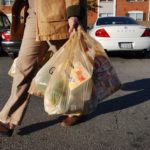Gov. Phil Murphy has named the President & CEO of the New Jersey Food Council (NJFC) to the “Governor’s Restart and Recovery Advisory Council” as the state’s nine major industries kick-start the economy this week.
“As we take the nascent steps needed to return to economic vibrancy, I am eager to highlight the perspective of the food industry and supply chain challenges,” said Linda Doherty. “Over the past two months, our NJFC membership has served on the front lines of this global pandemic, ensuring New Jersey families have access to the food, nutrition and supplies they need, as well as creating a solid pipeline of job opportunities for those who became unemployed.
“From our unique vantage point, this is an opportunity to share with my fellow council members the key initiatives that will strengthen the food supply chain as the state gets back on its feet as quickly as possible,” added Doherty, assigned to the Manufacturing and Supply Chain Committee. “I appreciate the governor’s faith in me and I look forward to serving as a knowledgable resource from the perspective of the business community.”
Late last week, Murphy signed an executive order to create this “boots on the ground” advisory council that brings together leaders from various industries, communities and faith-based groups.
Among the council members are two other leaders in the food industry: Joe Sheridan serves as President & COO of Wakefern Food Corp., the state’s largest private employer, selling under the banners of ShopRite, Price Rite Marketplace and Fresh Grocer. The governor also tapped Campbell Soup Company General Counsel Adam Ciongoli, who oversees the company’s legal department, government affairs, security, corporate responsibility & sustainability groups.
“With this task force we are bringing together some of the sharpest minds our state and nation have to offer,” Murphy said. “As I have said from the start, public health creates economic health and these individuals will help us decide when and how to restart the economy to best benefit both.”
Taking into account the unique facets of New Jersey’s economy and society, the advisory council comprises nine separate committees. They represent government, health care, Main Street businesses, manufacturing and supply chain, professional services, social services and faith, tourism and entertainment, transportation and infrastructure.
The all-volunteer council is chaired by New Jersey Economic Development Authority President & Chief Executive Officer Tim Sullivan, Choose NJ President & CEO Jose Lozano and the state’s higher education secretary, Zakiya Smith Ellis.
The co-chairs of the Advisory Council are authorized to call upon any department, office, division, or agency in the state for public data and information, as well as any personnel or other assistance, as part of the council’s work in the coming weeks.
The Shelby Report shared the announcement to national partners.





